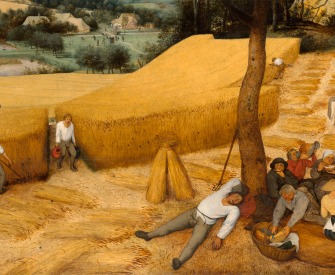There are many kinds of plants which are called intelezi. Intelezi is a thing of this kind: when a man goes to wash he does not wash with water only, like women; it is women only who wash with water only. When a man goes to wash he picks several kinds of intelezi, and when he has come to the river he looks for a pebble and sits down and bruises the intelezi. When he has bruised them, he pours a little water on them and squeezes them in both his hands; he raises his hands over his head, and as the water which runs out of the bruised leaves and stalks of the intelezi descends by both his arms, it escapes at his feet—and he pours some into his mouth, that he may squirt it in the direction of where he has received an injury. If he has no enemy he does not squirt in this manner; he then rubs his whole body and throws the remains on the grass. He then washes the pebble with which he bruised the intelezi and the rock on which he bruised it, and hides the pebble, because tomorrow also he may want it; he then washes himself with water.
As to the mode in which a man washes himself among black men, he does not begin to wash every part of the body indifferently; he begins with his arms, after that he pours water over his body with both his hands, then throws it over each shoulder until he has washed the whole body, when he dresses and goes out of the water.
He washes himself therefore with intelezi, that though he should meet with danger while traveling, he may not be quickly injured but escape constantly from danger which may arise either from falling or from fighting; and that he might not suddenly fall into danger.
Black men trust very much to intelezi, for at all times when a man is about to wash he takes intelezi. But when he has gone to the ford, he does not take intelezi but washes with water only; for he quits his hut when it is still dark, and he cannot see intelezi. Further, he does not wash with intelezi under such circumstances, because the ford is said to be a bad thing, and although a man has medicines to which he trusts, he cannot go to them to touch them—and if he has great need to touch his medicines, he searches for izilumulo among them, and uses them, and then he will untie his medicines, having put them in safety, and then his medicines come to no harm.
Such then is intelezi. There are some who are acquainted with powerful intelezi with which doctors wash themselves. If a man plays with another who has washed with intelezi and meets with some severe injury from merely playing with the man, the man is dreaded, and it is said, “Oh, the intelezi of that man is powerful. Why, when he is merely playing with another and not fighting, has he met with so severe an injury as this? No, the intelezi of that man is powerful.”
From The Religious System of the Amazulu. An English clergyman and doctor named Henry Calloway translated the narratives of South Africa’s Zulu tribe. British colonial troops invaded Zululand in 1879, annexing the area in 1887. The Zulus today are the largest ethnic group in South Africa.
Back to Issue




